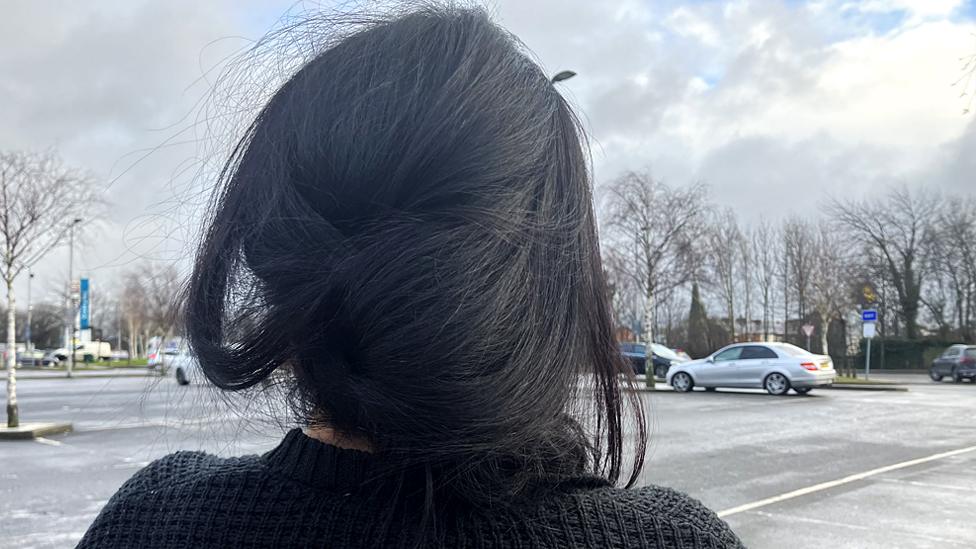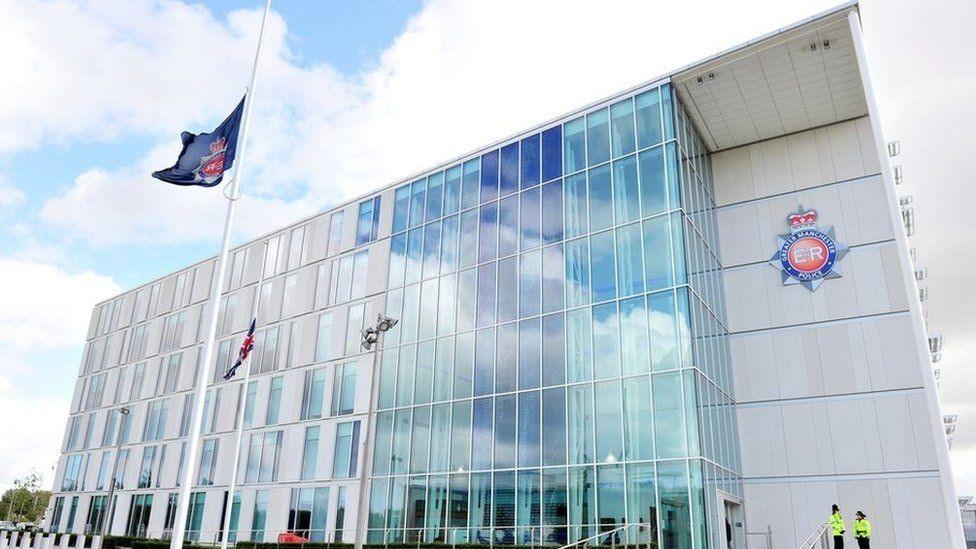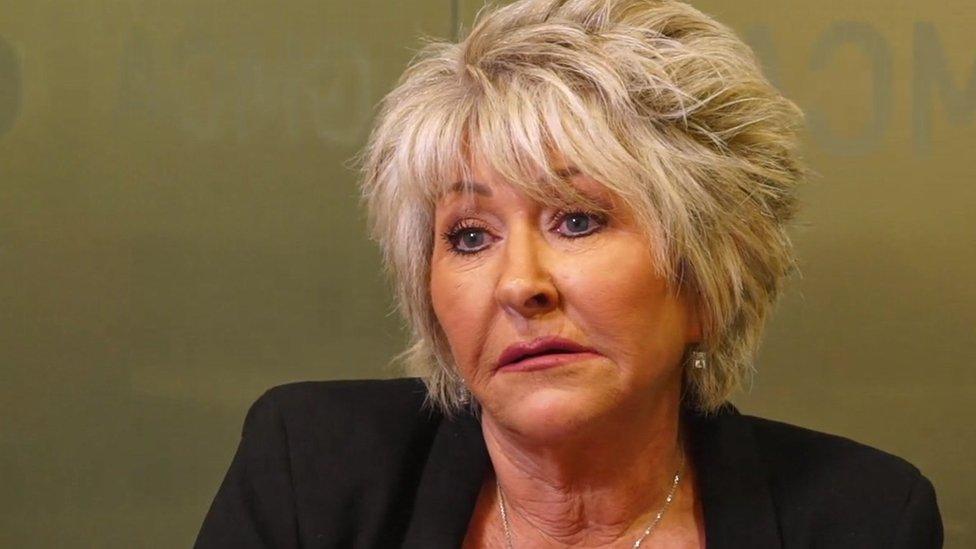Greater Manchester Police didn't care I was abused, woman says
- Published

Tina said she was attacked by her husband on her wedding night and beaten "black and blue"
Police have apologised to a woman for failing to investigate her complaints of being a victim of modern slavery.
Tina - not her real name - said her husband had beaten her up and forced her into prostitution.
She said she told Greater Manchester Police (GMP) several times between 2009 and 2015, but the force "didn't care, they didn't believe me", adding: "They didn't do anything."
GMP has apologised to Tina by letter for its failures.
Tina told BBC Radio Manchester the physical abuse had started as soon as she had got married and went on for eight years.
"He beat me black and blue on my wedding night," she said.
"It was hell.
"For years, I would have to do as I was told or I'd get beaten.
"I reported it to GMP and they didn't do anything."
Multiple reports
Tina also described the horrors of being trafficked.
"He was selling me out to men for sex," she said.
"He would drive me around and put me in flats [and] would then have men come in and sell me for sex.
"If I didn't do as I was told, I'd get beaten."
Tina said she first reported the domestic violence in 2009, but GMP said it had no records.
After being arrested on suspicion of theft the following year, she said she again reported the abuse, but police did nothing.
In a letter to Tina, the force said it had no record of that complaint.

GMP has apologised to Tina by letter for its failures
In 2012, she reported to police she was having suicidal thoughts due to the abuse she had been suffering, but again, the complaints were never followed up.
GMP have apologised for this and acknowledged the issues she raised should have been addressed.
Three years later, Tina provided police with an extensive amount of evidence to support the allegations of trafficking and abuse.
A year later, an allegation of an offence under the Modern Slavery Act was recorded against Tina's husband.
While an investigation was launched, he was never arrested and is now understood to have left the UK.
In 2018, Tina told police she no longer supported the investigation due to the impact on her family and her lack of confidence in how matters had previously been handled.
'Just speak up'
In a statement, GMP's Supt John Griffith said the force was "committed to delivering outstanding service which cares for victims and keeps them safe [and] significant progress has been made against this since Tina's contact with the force between 2009 and 2015".
He said GMP's Modern Slavery Co-ordination Unit was established in 2015 and had since been "widened to include a nationally-recognised unit which advises and supports district and centrally-led investigations across Greater Manchester to ensure the best possible outcomes for those affected".
He added that he also wanted to highlight the work of Greater Manchester Victim's Services, external.
Mr Griffith said due to a recent request for the office of Greater Manchester Mayor Andy Burnham, who oversees the force, "to review how the complaint into this case was handled", it would be inappropriate to comment further, but he urged victims of crime to report incidents and abuse to police.
Maggie Oliver, a detective who resigned from Greater Manchester Police over the way grooming cases in Rochdale were handled, said the force's statement was just "empty words".
"The words are there, but the actions to put things right are too slow," she said, adding: "This is not one officer who let Tina down. This is a whole series of different officers... it is scandalous."
She now runs the Maggie Oliver Foundation which was set up to support survivors of sexual abuse and said it currently had "281 live cases of victims who have come to us and said they are being failed by GMP".

Former detective Maggie Oliver says the way Tina was "let down" was "scandalous"
Tina said she had decided to speak to the BBC in order to protect other women and girls.
"It's not just young girls, it's older women too," she said.
"It can happen to anybody.
"Just speak up and make sure you're believed."
A representative for Mr Burnham's office said it would be "inappropriate to comment further whilst we review the issues raised", adding: "This is a role we take incredibly seriously and review all requests thoroughly and fairly."
Ed Newton from modern slavery charity, Causeway, described Tina's experience as "heartbreaking".
"I think it's key to make sure for any front line service that when anyone tells their story, first and foremost, we believe them and what they say is looked into.
"It's certainly true to say that there are too few prosecutions taking place," he told BBC Radio Manchester.
Mr Newton said the charity found that sentencing terms for those involved with modern slavery was "lenient" and he believes that sentencing should "send a message that survivors are believed".

Why not follow BBC North West on Facebook, external, Twitter, external and Instagram, external? You can also send story ideas to northwest.newsonline@bbc.co.uk